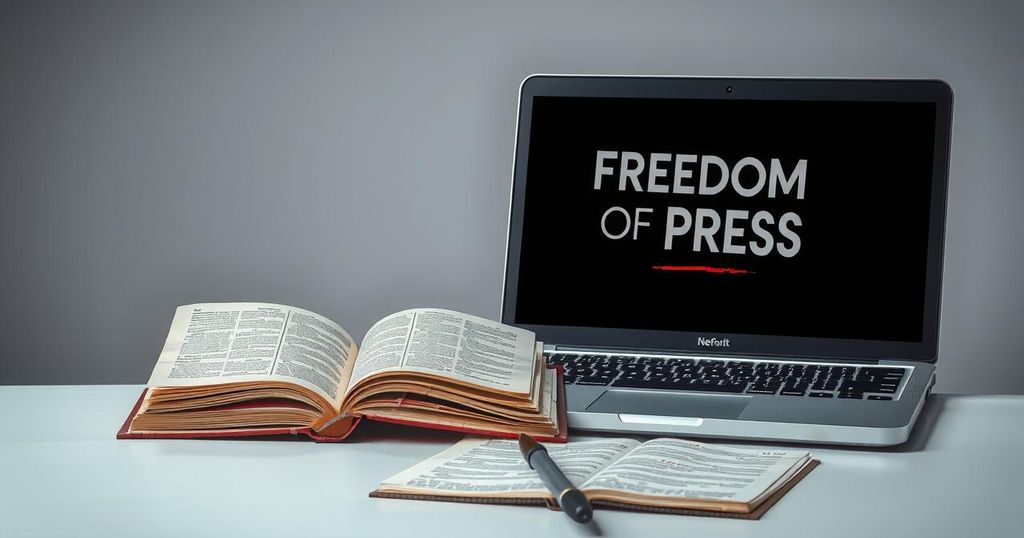South Sudan has blocked social media platforms to manage unrest following violence related to protests. The CPJ has condemned this directive, citing it as an infringement on press freedom. Journalists are using VPNs for reporting but face challenges in reaching audiences. The ban has sparked broader concerns about public access to crucial information amidst government curfews and actions.
In South Sudan, authorities have restricted access to social media platforms following recent unrest, a move that has drawn strong criticism from the Committee to Protect Journalists (CPJ). Effective January 22, the National Communication Authority instructed all internet providers to block social media access for a period ranging from 30 to 90 days as part of efforts to manage the spread of distressing footage of violence related to protests in the region.
The decision aims to quell unrest that has resulted in violent protests, including retaliatory actions against Sudanese nationals. CPJ condemned the blanket social media censorship, asserting it hampers journalists’ efforts and limits the public’s access to diverse news sources. Muthoki Mumo, CPJ’s Africa programme coordinator, emphasized that “blocking social media access is a blanket act of censorship and a disproportionate response to unrest that makes it difficult for journalists to do their jobs and robs the public of the diverse sources of news.”
Journalists are struggling to adapt to the ban by using virtual private networks (VPNs) to continue their reporting, but they are uncertain whether their audiences are receiving their work. Mariak Bol, editor-in-chief of Hot in Juba, expressed concern over the accessibility of information, stating, “We journalists are using VPNs to work. What we do not know is whether our audience is receiving [our news].”
The social media blackout coincides with other government responses to unrest, including a curfew imposed in Juba on January 17. Napoleon Adok Gai, the Authority’s director general, hinted that the ban might be lifted within 72 hours; however, there has been no official confirmation regarding this timeline. Efforts made by CPJ to contact South Sudan’s information minister for further insights have been unsuccessful.
The South Sudanese government has implemented a ban on social media in response to escalating violence and public unrest, particularly concerning the killings of nationals in neighboring Sudan. This measure is seen as an attempt to control the dissemination of information that may incite further violence, highlighting tensions both within South Sudan and between the two countries. The CPJ has raised alarm about the implications of this ban on press freedom in South Sudan, where journalists already face significant challenges in their reporting. The enforcement of such restrictions poses a formidable barrier to effective journalism and the public’s right to information, especially in times of crisis.
In summary, the South Sudan government’s unprecedented ban on social media raises significant concerns regarding the state of press freedom and public access to crucial information during a period of unrest. The actions taken by authorities in response to violence have drawn widespread condemnation from organizations like the CPJ, emphasizing the need for robust safeguards for journalists and the media. As the situation develops, the implications for societal discourse and journalistic integrity remain critical.
Original Source: punchng.com






